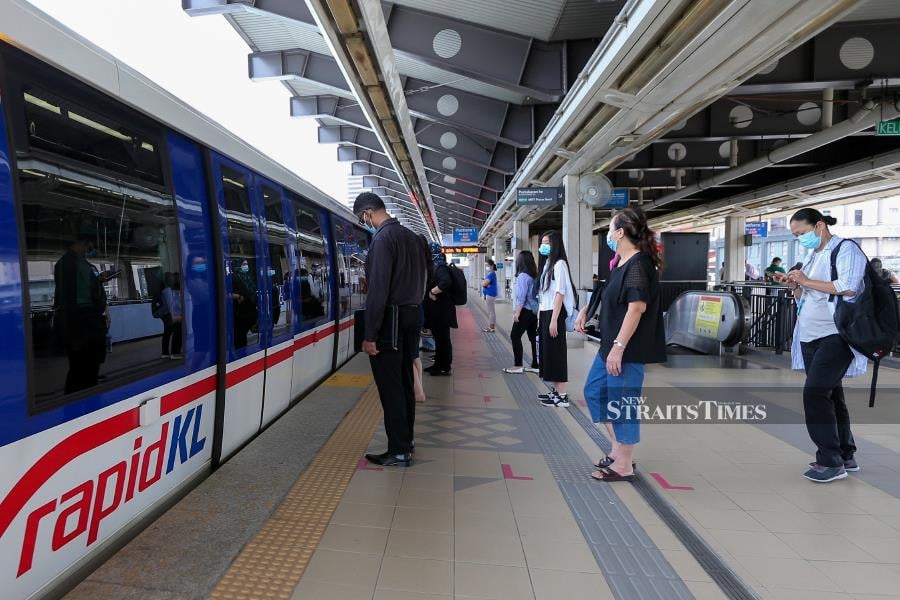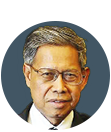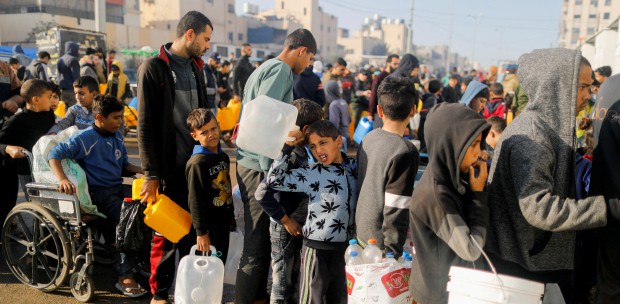ON June 15, the Department of Statistics (DoSM) announced that Malaysia's unemployment rate stood at five per cent at the end of April. The last time we had a figure above the 4.0 per cent mark (which denotes full employment) was in 1993.
We expect the unemployment rate in May to slightly increase when the figures are released in mid-July.
In the past three months, the government has prioritised the health of the rakyat in fighting Covid-19. The preservation of life is a sacrosanct responsibility that the government takes seriously.
Alhamdulillah, in this regard we have been very successful. Kudos to all our health front-liners.
We must now focus on jobs, even as we keep an eye on the Covid-19 pandemic.
DoSM defines the unemployed as people who do not have a job, are available for work, and are actively looking for work.
However, they do not include those who do not work because of illness but have a job to return to, and those who are temporarily laid off with pay.
The employed, meanwhile, are defined by DoSM as "all persons who, at any time during the reference week worked at least one hour for pay, profit, or family gain either as an employer, employee, own-account worker or unpaid family worker".
Some sectors of the economy are better placed to weather current labour market conditions. For instance, government servants have not lost their jobs. Indeed, most of our heroic front-liners — doctors, nurses, policemen and soldiers — have gone the extra mile to keep us all safe. Employees of government-linked companies have also been able to keep their jobs.
In the private sector, employees in essential services have been largely spared. However, many other sectors are adversely affected. In particular, vulnerable industries such as aviation, tourism and hospitality will take one to two years to recover.
In the post-Covid 19 economic landscape, we will have to deal with some serious challenges in the labour market. Covid-19 has exposed our over-reliance on foreign labour. Replacing them with locals, particularly in the field of "3D Jobs", is key to reducing their number.
Accelerating digitalisation is unsettling the labour market. Retraining and upskilling workers is essential for our labour force to remain globally competitive in the future economy.
The 290,000 young Malaysians who graduate annually will find it challenging to be employed at this time. More jobs must be created to unlock their potential.
There is a need to improve our data collection capabilities on the labour market. We need more comprehensive and timely data to effectively respond to changes on the ground.
Employees in the informal sector are inadequately protected from Covid-19. We must strengthen our social safety net for informal workers, many of whom risk insolvency without a stable job.
The pandemic has accelerated change in the nature of work. In the past, an employee would spend his/her whole career with one employer, moving up the ladder within an organisation over the course of decades.
Today, a person will probably work for 10 employers in his/her lifetime. In fact, some people are now taking up two jobs simultaneously!
This challenging market is the reason why RM9.55 billion out of RM35 billion in Penjana was earmarked for the benefit of wage-earners.
Out of this, RM2 billion was allocated to enhance the employability of the unemployed through retraining programmes.
Job creation is one of the main pillars of the Penjana package. The entire world is grappling with widespread unemployment as a result of the pandemic.
This crisis is, and will continue to be, a challenge for all of us. In the United States, for example, the unemployment rate is about 14 per cent, which is more than the population of Malaysia.
Indeed, the OECD and other international organisations have stated that Covid-19 will leave countries with deep and permanent economic scars, far exceeding the effects of any other peacetime recession in the past century.
However, the Mandarin word for crisis, "weiji", is composed of two characters — one meaning danger and the other opportunity. As challenging as things are, this is also an opportunity to revitalise, reorganise, strengthen, and ultimately future-proof our economy.
Peter Drucker, the founder of modern management, wrote that "the ultimate resource in economic development is people".
The government will continue to invest in the rakyat.
We will ramp up our digital agenda; reduce the number of foreign workers from two million people to perhaps one million; and revamp our school and university curriculum. In this way, unemployment is addressed in both the immediate and the long term.
This is an opportunity to prepare Malaysians for the jobs of the future. Let's not miss the boat.
The writer is minister in the Prime Minister's Department (Economy)






